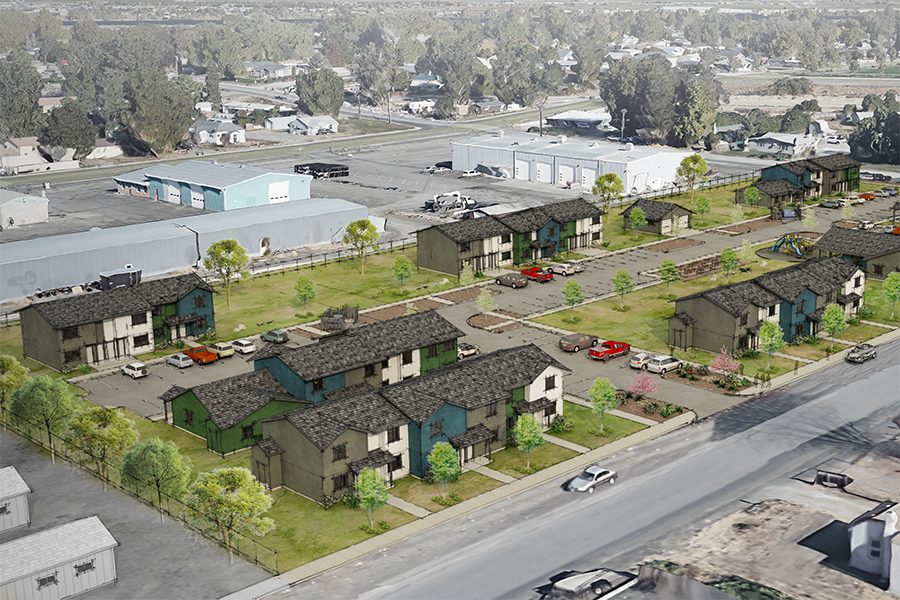
Home » Report: State-funded housing units feel the pinch, especially in Benton County
Affordable housing
Report: State-funded housing units feel the pinch, especially in Benton County

The $22.7 million “Bubble on Gum – Home Sweet Home” affordable housing development is planned at the corner of Gum Street and 13th Avenue in Kennewick.
Courtesy Kennewick Housing AuthorityJanuary 9, 2025
Efforts to curb housing costs in Washington state are falling short of helping those living in state-funded housing units as the availability of homes, inflation and other factors continue to squeeze renters. Benton County is listed among the counties most heavily affected by rent burden.
A recently released report from the state Department of Commerce and state Housing Finance Commission details efforts to stabilize rents for tenants in state-funded affordable housing while also making sure the entities providing that housing are kept whole.
“These values are often in conflict with each other, so we must find a balance that promotes the long-term stability and well-being of both residents and the properties they live in,” said Steve Walker, the commission’s executive director, in a statement. “This is the challenge we face as we head into 2025 with a continued housing shortage.”
A key finding in the report shows that 43% of residents in Commerce’s Housing Trust Fund-funded units and 56% of residents in commission-financed Low-Income Housing Tax Credit units did not receive rental assistance in 2023. Among these households, 43% and 65%, respectively, experienced rent burden during the same year.
In Benton County, 55% of households in renter-occupied units pay 30% to 50% of their income toward rent. The report says the county is among 13 across the state heavily affected by rent burden. Benton County had more than 50% of tenants living in Commerce-funded housing without additional subsidies experiencing rent burden in 2023.
In Franklin County, 48% of households in renter-occupied units pay 30% to 50% of their income toward rent.
Officials say more than one in four Washingtonians are severely rent burdened – paying at least half of their income on rent – while the state faces an estimated need for more than a million new homes in the next 20 years to meet housing demand at all income levels.
The report highlights several challenges:
- Increased operating costs, up 80% over a three-year period.
- Decreased rent collections, 60% to 90% vs. pre-pandemic levels of 95% to 100%
- Safety and security needs.
- Housing mismatch – lack of options for people needing permanent supportive housing or housing with services and rental assistance
- Affordability issues – mismatch between what low-income residents can afford to pay for housing and the rents set based on area median incomes, creating rent burden.
Latest News Real Estate & Construction
KEYWORDS January 2025
Related Articles
Related Products




